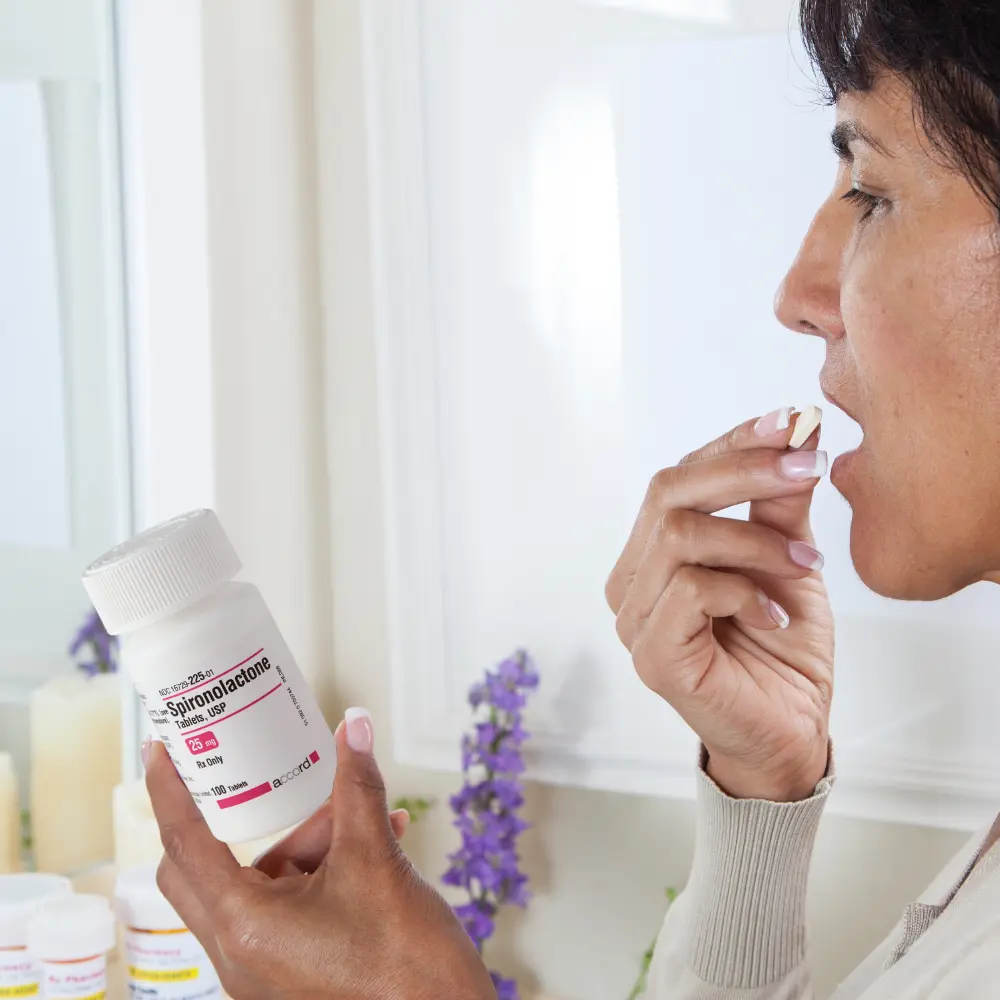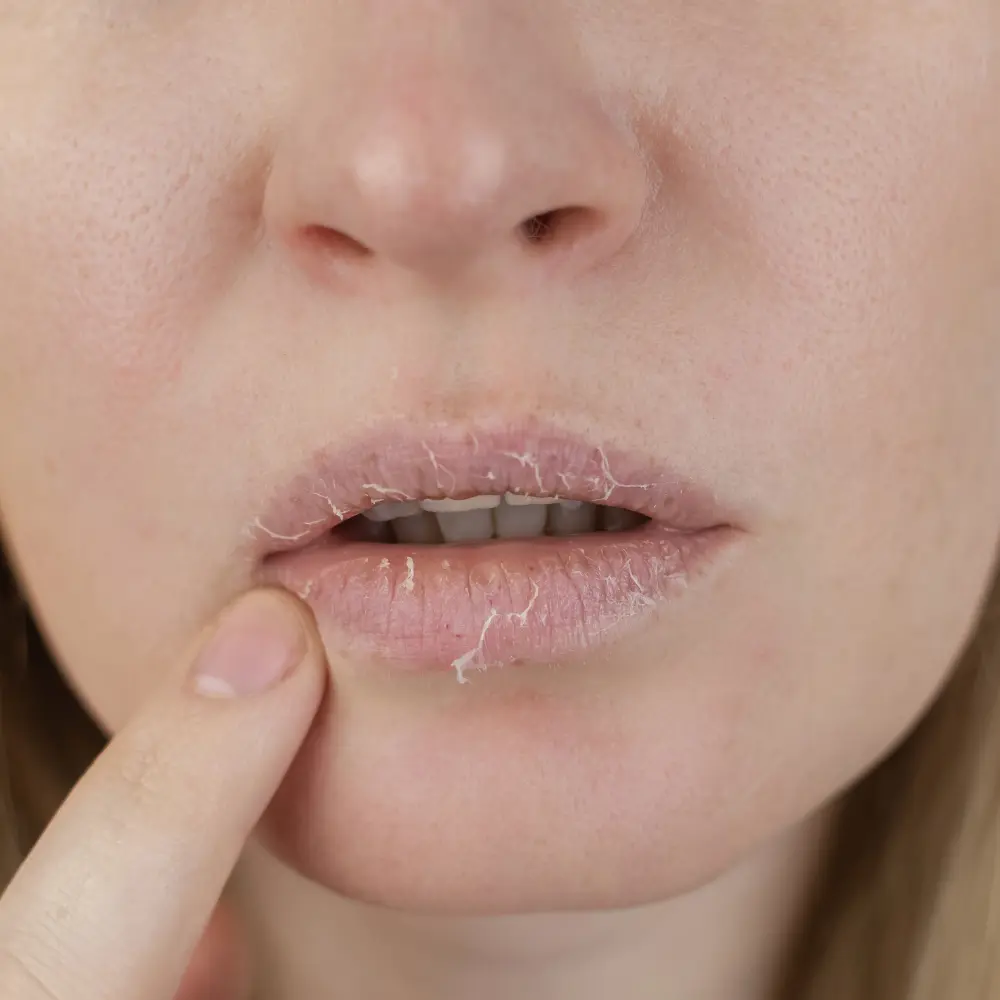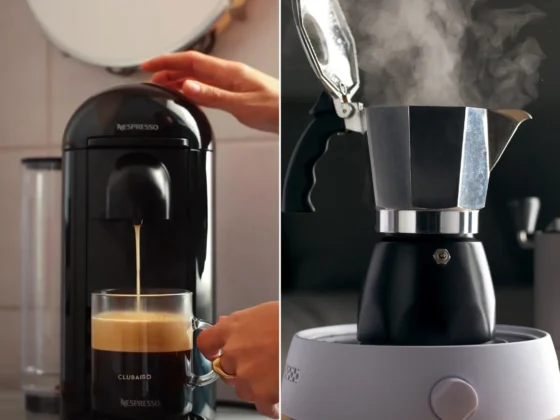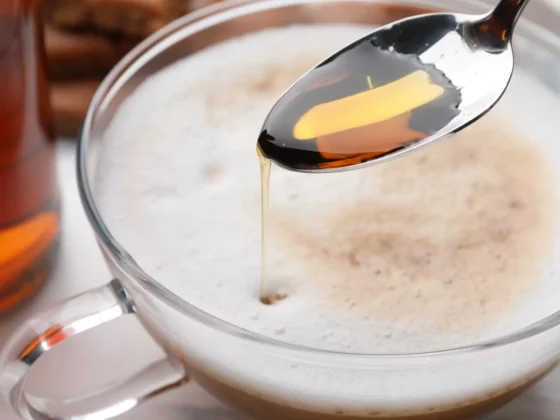Many of us begin our day with a comforting cup of coffee, a ritual that stimulates our senses and kick-starts our morning routine. But what happens when we’re faced with a health condition that requires medication, such as Spironolactone? A common question that arises is, “Can I drink coffee while taking Spironolactone?”
In this comprehensive guide, we’re going to dive into the interactions between coffee, a daily staple for many, and Spironolactone, a widely prescribed medication. Through an exploration of the medicinal properties of Spironolactone, the chemical makeup of coffee, and the potential outcomes of their interaction, we hope to provide a clearer understanding for those navigating their health journey.
Remember, though, while this guide is intended to provide useful insights and reliable information, it’s always essential to consult with your healthcare provider about any concerns related to your medication regimen and lifestyle habits. Now, let’s begin unraveling the interactions between coffee and Spironolactone.
Spironolactone and Coffee: Key Takeaway
- Spironolactone and Coffee Interactions: There’s no strong scientific evidence suggesting that coffee directly affects the effectiveness of Spironolactone. However, due to the diuretic properties of both substances, some individuals may experience amplified effects, leading to dehydration.
- Potential Risks and Benefits: The primary potential risks of consuming coffee while taking Spironolactone include excessive diuresis and temporary elevations in blood pressure. On the flip side, maintaining the routine of coffee consumption and enjoying the cognitive benefits of caffeine might be beneficial for those who tolerate coffee well.
- Best Practices: Moderation in coffee consumption, proper hydration, and monitoring your body’s responses are key practices when drinking coffee while on Spironolactone.
- Alternatives and Communication: If coffee doesn’t agree with your body while taking Spironolactone, alternatives like decaffeinated coffee or herbal tea can be explored. Open and honest communication with your healthcare provider about your lifestyle habits and potential medication interactions is vital.
- Real-Life Experiences: Experiences with coffee consumption among Spironolactone users are diverse, underscoring the importance of personalized medical advice. Your health journey is unique, so understanding your body’s reactions to both coffee and Spironolactone is crucial.
Understanding Spironolactone: A Medicinal Overview
Before we delve into the specifics of how Spironolactone interacts with coffee, it’s essential to have a fundamental understanding of the medication itself. This foundational knowledge will help you make informed decisions about your health and wellness.
What is Spironolactone and What is it Used For?

Spironolactone is a medication classified as a potassium-sparing diuretic or water pill. This means it helps your body get rid of extra water while keeping the potassium levels from getting too low. The medication is primarily used to treat various conditions, including heart failure, high blood pressure, and certain types of edema (fluid retention). It’s also used in treating conditions related to hormone imbalances, such as polycystic ovary syndrome (PCOS) and acne caused by excess androgen hormones. (1)
How Does Spironolactone Work?
Spironolactone works by blocking the actions of a hormone in the body called aldosterone. Aldosterone plays a significant role in regulating the balance of salt and water in your body, contributing to your blood pressure levels. By blocking aldosterone, Spironolactone allows your kidneys to get rid of excess salt and water in your body while conserving potassium. In conditions like high blood pressure or heart failure, this action helps decrease fluid retention and alleviate the workload on your heart. (2)
Potential Side Effects of Spironolactone
Like any medication, Spironolactone may cause some side effects, although not everyone will experience them. Some common side effects include dizziness, nausea, and headache. It can also cause increased potassium levels in the blood, a condition known as hyperkalemia, which can lead to serious heart problems if not managed.

Less common but more serious side effects can include changes in heartbeat, severe dizziness, and unusual fatigue or weakness. If you experience any side effects, especially those that persist or worsen, it’s important to consult your healthcare provider promptly.
Remember, the aim of this overview is not to deter you from taking prescribed medications but rather to enhance understanding and encourage open dialogue with healthcare professionals. Every person’s reaction to medication can vary, and understanding these potential effects helps you be proactive in your healthcare journey.
The Chemistry of Coffee

Moving onto coffee, we’ll examine its intricate chemistry to better understand how it might interact with Spironolactone. Coffee, more than just a morning routine, is a complex concoction of compounds that can impact our body in various ways.
What’s in Your Cup? Components of Coffee
When you sip your coffee, you’re consuming a multitude of active components that give coffee its unique taste, aroma, and stimulating effects. Key components include:
- Caffeine: The most well-known component, caffeine, is a stimulant that affects the central nervous system. It’s responsible for the energy boost and increased alertness experienced after drinking coffee.
- Antioxidants: Coffee is rich in antioxidants, including chlorogenic acids, which can help combat oxidative stress in the body.
- Diterpenes: These are naturally occurring compounds in coffee, specifically cafestol and kahweol, that may contribute to increased LDL cholesterol levels, although most of these are removed in filtered coffee.
- Acids: Coffee contains various types of acids, including citric, malic, and chlorogenic acids, contributing to its flavor profile and antioxidant content.
Health Benefits and Risks of Coffee

Like any food or drink, coffee has both potential benefits and risks, which can depend on various factors such as quantity consumed and individual health status.
Benefits of Coffee:
- Improved cognitive function and alertness due to caffeine
- High antioxidant content, which may reduce the risk of certain diseases, like Parkinson’s and Type 2 Diabetes
- Potential protective effects on the Liver
Risks of Coffee:
- Overconsumption of caffeine can lead to restlessness, insomnia, and heart palpitations
- May increase blood pressure temporarily, especially in those not used to caffeine
- Can cause digestive problems for some individuals, including acid reflux or stomach upset
How Does Coffee Interact with Your Body?
After consumption, coffee, specifically caffeine, is rapidly absorbed into the bloodstream and transported to the liver where it’s metabolized. It then affects various systems in the body. Primarily, it blocks the action of a neurotransmitter called adenosine in your brain, leading to increased alertness and reduced fatigue.
Caffeine also stimulates the release of several other neurotransmitters, including dopamine and norepinephrine, which can enhance mood and cognitive functions. However, caffeine can also stimulate the heart and raise blood pressure temporarily, a potential concern for people with heart conditions or high blood pressure.
Understanding the makeup of coffee and how it impacts your body is crucial, as this knowledge will help you better understand its potential interactions with medications like Spironolactone.
Exploring the Interactions Between Spironolactone and Coffee
With a solid understanding of both Spironolactone and coffee, let’s now explore the potential interactions between these two. Remember, it’s always crucial to discuss any concerns about your medication with your healthcare provider.
Can Coffee Affect Spironolactone Efficacy?

There is currently no strong scientific evidence to suggest that coffee consumption directly impacts the effectiveness of Spironolactone. However, there are indirect factors that might come into play:
- Dehydration: Coffee, especially in large quantities, can have a mild diuretic effect, which might amplify the diuretic effect of Spironolactone, potentially leading to dehydration.
- Blood Pressure: While Spironolactone is used to manage high blood pressure, caffeine in coffee can cause a short-term spike in blood pressure. This could potentially counteract the effects of Spironolactone, particularly in those sensitive to caffeine.
Again, it’s important to stress that these potential interactions may not occur in all individuals and can depend on factors such as the amount of coffee consumed and individual health status.
Potential Risks and Benefits of Combining Spironolactone and Coffee
Weighing the potential risks and benefits of combining coffee with Spironolactone is a nuanced task. Let’s look at some possible considerations:
Potential Risks:
- Excessive Diuresis: As discussed earlier, both coffee and Spironolactone have diuretic effects. Consuming large amounts of coffee while on this medication may increase the risk of dehydration.
- Elevated Blood Pressure: As mentioned before, although temporary, the blood pressure increase caused by caffeine could be an issue for those taking Spironolactone for hypertension.
Potential Benefits:
- Maintaining Lifestyle: For many, coffee is a significant part of their daily routine. If coffee doesn’t seem to interfere with the medication’s effectiveness or cause adverse effects, it might not need to be eliminated.
- Cognitive Benefits: The cognitive benefits from caffeine might be a positive aspect for those who tolerate coffee well.
Expert Opinions on Coffee and Spironolactone Use
Most healthcare professionals recommend moderation when it comes to coffee consumption, particularly for those on medications like Spironolactone. While there is no definitive guideline against coffee, it is advisable to monitor your body’s reactions and discuss any concerns with your healthcare provider.

Experts also suggest that if you’re a regular coffee drinker and have been prescribed Spironolactone, it’s essential not to quit caffeine abruptly as this can lead to withdrawal symptoms. Instead, consider gradually reducing your coffee intake if necessary.
Overall, the key takeaway is to maintain open communication with your healthcare provider about your lifestyle habits and any potential interactions with your medication. They can provide the most accurate information tailored to your unique health circumstances.
Practical Advice: Coffee Consumption and Spironolactone
Having investigated the possible interactions between coffee and Spironolactone, let’s now turn to some practical advice for those navigating this scenario. Here, we’ll cover best practices for coffee consumption, explore alternatives, and discuss the importance of communicating with your healthcare provider.
Best Practices for Drinking Coffee While on Spironolactone

While there’s no absolute rule against consuming coffee while on Spironolactone, you can follow some best practices to ensure your well-being:
- Moderation: Limiting your coffee intake can help mitigate potential risks. Consider sticking to one or two cups a day, depending on your tolerance.
- Hydration: Ensure you’re drinking enough water throughout the day to counterbalance the diuretic effects of both coffee and Spironolactone.
- Monitor Your Response: Pay attention to how your body reacts to coffee while taking Spironolactone. If you experience any unusual symptoms, it may be worth discussing these with your healthcare provider.
Alternatives to Coffee for Spironolactone Users

If you find that coffee does not agree with your body while taking Spironolactone, there are several alternatives you can consider:
- Decaffeinated Coffee: This allows you to enjoy the taste of coffee without the potential issues associated with caffeine.
- Herbal Tea: Teas such as chamomile, peppermint, or rooibos can provide a warm, comforting beverage without caffeine.
- Chicory Coffee: Made from the roots of the chicory plant, this Chicory coffee is a popular caffeine-free coffee substitute.
Discussing Your Habits with Your Healthcare Provider

As discussed earlier, open and honest communication with your healthcare provider is essential when you’re on medication. Let them know about your lifestyle habits, including coffee consumption, and ask any questions you may have about potential interactions with your medication. They can provide advice tailored to your unique health circumstances, ensuring you receive the best possible care. After all, a well-informed patient is an empowered patient.
To sum up, while coffee may not directly interact with Spironolactone, potential indirect effects should be considered. By following best practices and maintaining clear communication with your healthcare provider, you can enjoy your daily coffee ritual without compromising your health.
Conclusion
As we wrap up our exploration of the question, “Can I drink coffee while taking Spironolactone?”, it becomes clear that there is no one-size-fits-all answer. The information we’ve delved into shows that while there’s no direct evidence of coffee interfering with the effectiveness of Spironolactone, individual experiences can vary.
Understanding the complexities of both coffee and Spironolactone helps shed light on potential interactions and how they may affect different individuals. The possible diuretic effect of coffee, along with its potential to increase blood pressure, might warrant caution for some people, especially those who are more sensitive to caffeine or have certain health conditions.
However, the key takeaway is not to eliminate coffee entirely but to strike a balance. Moderation, hydration, and mindfulness about your body’s responses are essential. And, of course, maintaining open communication with your healthcare provider is invaluable. They can provide guidance tailored to your unique health circumstances and help you navigate any concerns.
From understanding the mechanics of Spironolactone and coffee to hearing real-life experiences, we’ve aimed to provide a comprehensive look at this topic. We hope that you walk away feeling more informed and empowered to make the best decisions for your health and well-being.
Remember, your health journey is unique, and so too will be your relationship with coffee and Spironolactone. Stay curious, ask questions, and most importantly, listen to your body.
FAQ
What are some alternatives to coffee for people on Spironolactone?
Some alternatives include decaffeinated coffee, herbal teas, and caffeine-free substitutes like chicory coffee.
How can I safely consume coffee while taking Spironolactone?
The key to safe consumption lies in moderation, adequate hydration, and monitoring your body's response to both coffee and the medication.
Do most doctors recommend avoiding coffee while on Spironolactone?
Most doctors do not strictly advise against coffee, but they often recommend moderation and monitoring of any symptoms or reactions.
What are some personal experiences of individuals taking Spironolactone and drinking coffee?
Personal experiences vary widely, with some individuals able to continue their regular coffee intake without issues, while others choose to reduce their intake or switch to alternatives.











